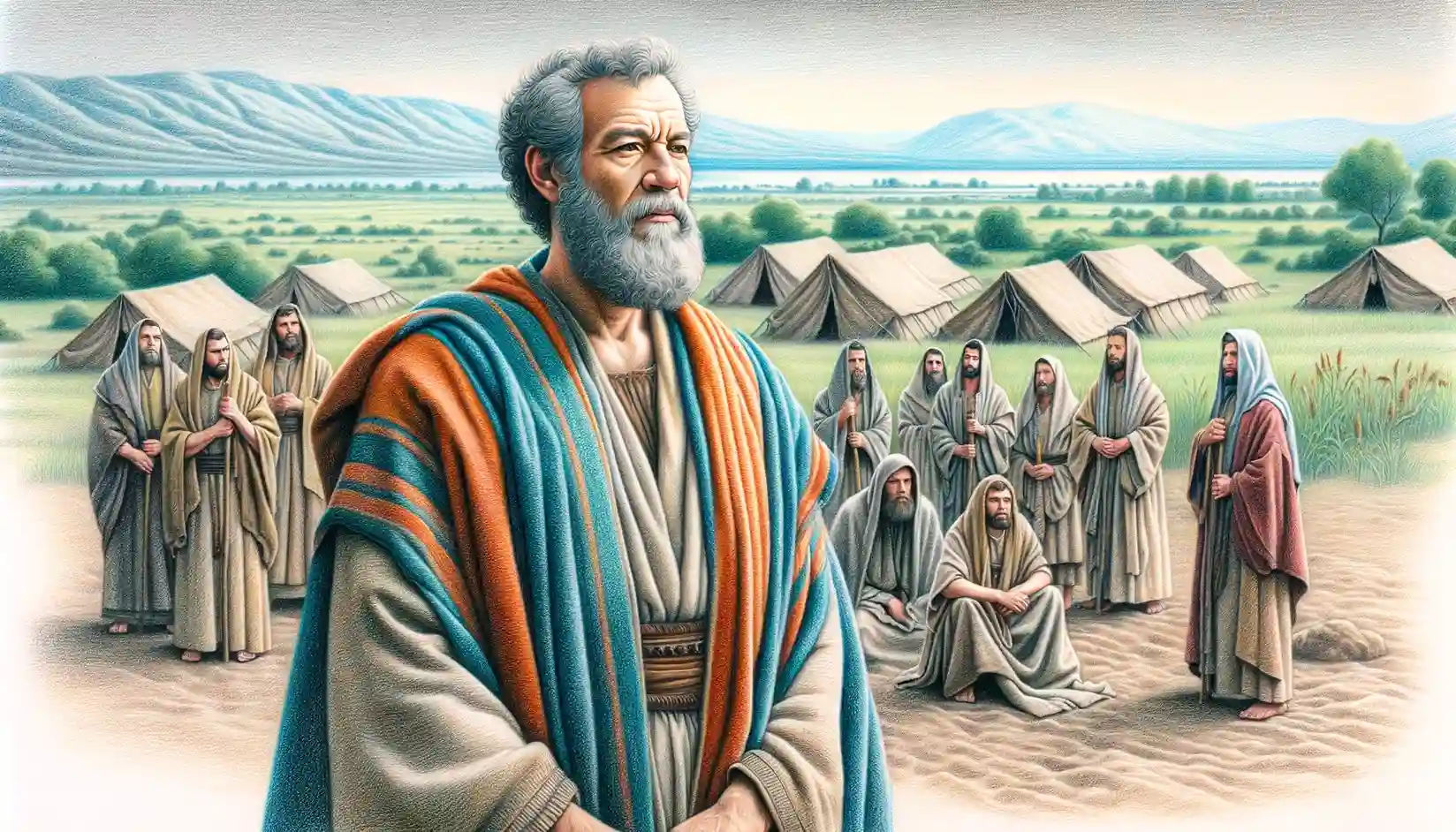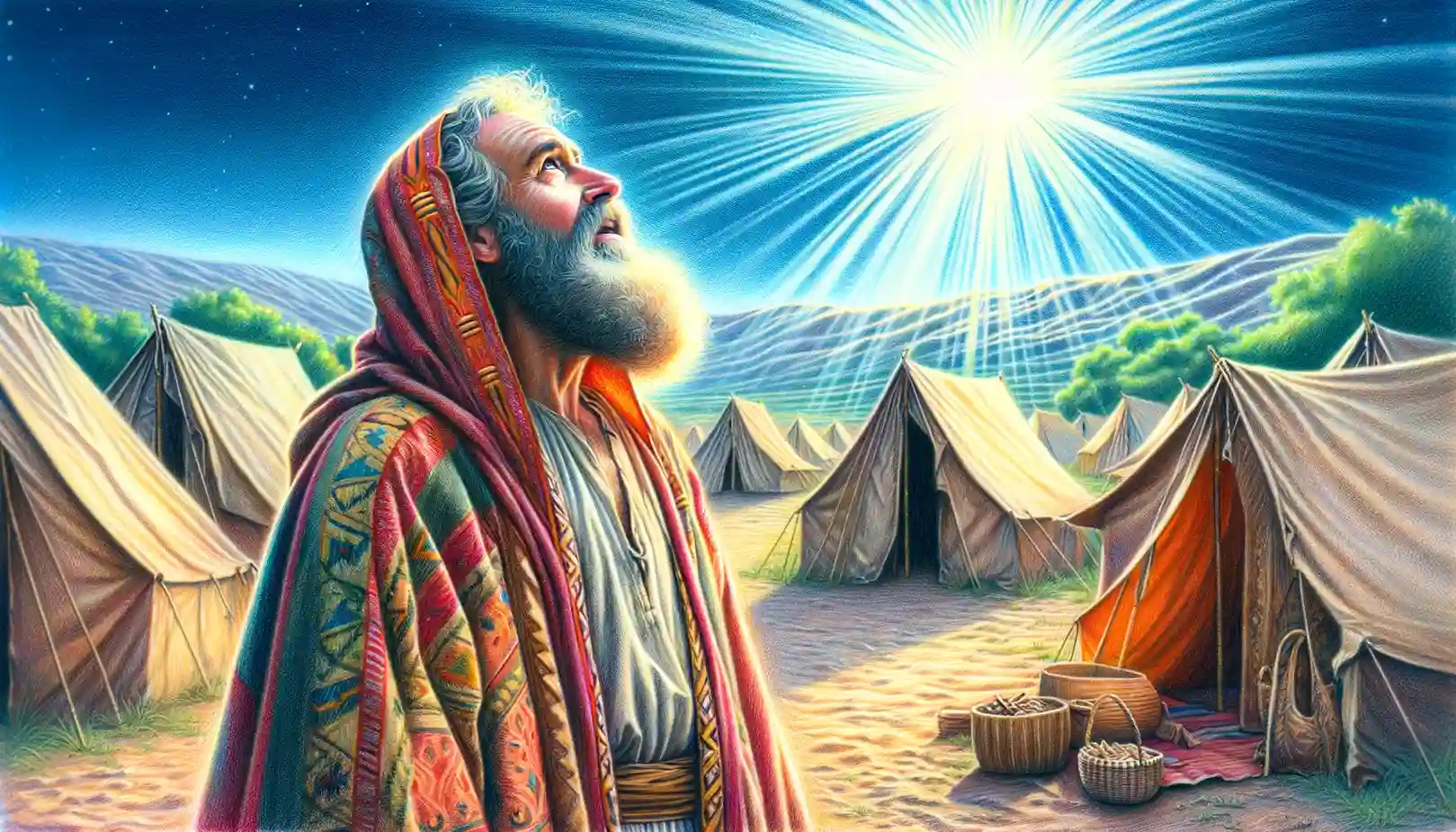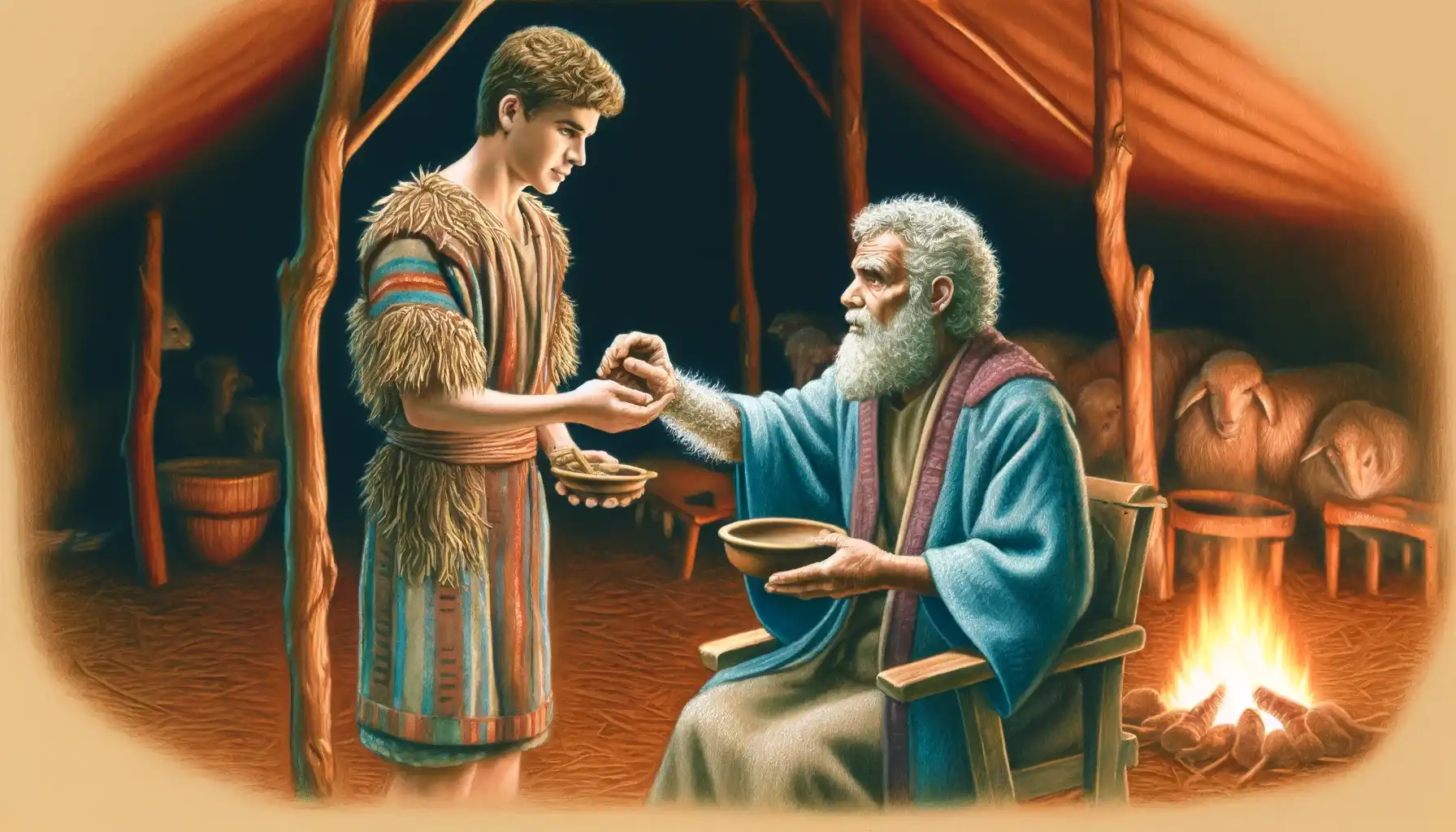Infertility in the Bible is depicted through the lives of Sarah, Rebekah, Rachel, Hannah, and Elizabeth, illustrating the profound faith and divine intervention that transformed their struggles into stories of hope and fulfillment.
Sarah, originally named Sarai, was the wife of Abraham and mother of Isaac, whose birth at her advanced age of 90 fulfilled God’s promise and demonstrated her unwavering faith in His plans.
Jacob, later named Israel, is a patriarch in the Hebrew Bible known for his journey from deceit to reconciliation, his twelve sons who became the twelve tribes of Israel, and his profound encounters with God.
Isaac, the son of Abraham and Sarah, known for his miraculous birth and near-sacrifice, married Rebekah and fathered Jacob and Esau, continuing the Abrahamic covenant and playing a pivotal role in the patriarchal history of Israel.
Isaac, whose birth to the elderly Sarah and Abraham was foretold by God, represents a miraculous fulfillment of divine promise and a key figure in the continuation of the Abrahamic covenant.
Abraham’s life exemplifies unwavering faith and obedience to God. His story is central to understanding the roots of monotheistic belief and the covenant relationship that defines Jewish identity and spirituality.
Abraham’s journeys are not just a tale of migration but a series of divine encounters and faith-building experiences that shaped the patriarch into the father of many nations and a key figure in the Abrahamic faiths.
Jacob deceived Isaac by pretending to be his brother Esau. He wore Esau’s clothes and placed goatskins on his arms and neck to mimic Esau’s hairy skin. With the help of his mother, Rebekah, Jacob brought Isaac food, seeking his blessing. Isaac, who was old and blind, was tricked into giving Jacob the blessing meant for Esau.








